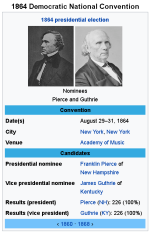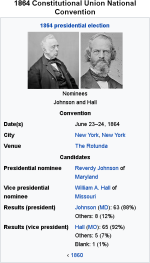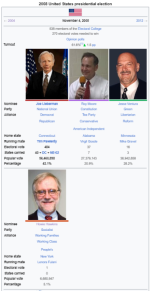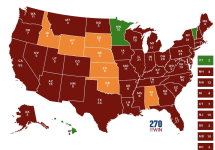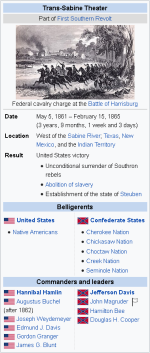King Leopold II has, in modern times, been remembered as one of the worst human beings in history. The Congo's meteoric economic rise has given many countries outside of the white-minority SARK[1] alliance pause on Leopold's actions, and Patrice Lumumba's passionate anti-imperialism has made him a continued villain. Conversely, his grandson,
Leopold III is remembered as one of the more incompetent and poor leaders in modern world history.
Leopold III took power in 1934, succeeding his father Albert I, and after trying to maintain Belgian neutrality in World War II, surrendered to the Nazis. The action made him so vilified he was declared "King Rat" by the British press, and his 1944
Political Testament gave no credit to the Belgian resistance in WWII. However, he was returned to the throne after allied occupation, and a 1950 referendum approved his return. However, the referendum was split almost entirely between the lines of Wallonia and Flanders, with Flanders heavily approving of Leopold's return and Wallonia opposing it. While this caused significant controversy, Belgian priorities would soon shift, with Cold War politics and the continued Anarchy taking their eye. Then, in 1954, Belgian forces would massacre Congolese independence activists in Leopoldville. The resulting outbreak of hostility from the Congo would lead to the outbreak of the Congo War, where the Congolese would war for their independence from 1954 to 1961.
The Congo was one of many countries that would try to find their independence after WWII. Many point to the occupation of France, which effectively destroyed its overseas empire (except for Algeria), by putting its African territories in a UN trust, "giving" Indochina to Japanese influence, and creating an independent Breton state, as the moment that caused the growth of decolonization of Africa. The UN trust territories would soon gain independence, and caused a clamoring amongst Portuguese, Belgian, and British holdings. In Kenya, the Mau Mau rebellion and perceived "weakness" of the British government towards rebels would lead to a Kenyan UDI, forming a white-minority state, which was soon joined by the former South Rhodesia.
Congolese independence was strongly opposed by Leopold III, and war would become extremely brutal. Although it began a wave of Belgian nationalism, soon the war became unpopular, and the usage of ex-Nazi troops from the Anarchy, many of whom were so brutal they made the CIA operatives in Africa disgusted, only hurt Leopold's popularity. Opposition would grow to the war in Belgium, in particular in socialist-sympathetic areas of Wallonia. The result was mass labor action, as several strikes and civil disobedience would break out.
Leopold would ignore these demands, but as labor action grew more explosive, and calls for Wallonian independence came with them, he resigned to allowing for Congolese independence. In 1961, the Madrid Accords would be signed, giving the Congo its independence, although it would only begin the Congo Civil War, as anti-Communist forces (backed by the CIA) and the Lumumba government, along with Katangans (backed by Belgium and strangely, Japan), would war with each other. The Congo Civil War would end in 1966, with Lumumba only strengthening his position, and becoming an ally of the Soviet Union. This would end with Al Gore I's visit to the nation, which allowed the Congo to become "non-aligned", and begin Most Favored Nation status with the United States.
However, the end of the Congolese War would not end Leopold's troubles. Wallonia's response to the economic strife under the war and their general dislike of Leopold had let a genie out of the bottle. Wallonian forces, led by a young "New Left" would call for their independence from Belgium, and had a new backer: France. France had been thoroughly embarrassed after WWII, and wanted to regain status. Jacques Massu, the new leader of France, called for Wallonian independence in several forums, famously saying "
Vive Wallonie Libre" while visiting Carleroi, which caused an explosion of Walloon nationalism. The result was a drawn-out struggle, known as the "Troubles", which ended in 1970, with Walloon independence and an embarrassed Leopold signing off.
Leopold III would spend the last 13 years of his term generally disliked by his peers. Many Belgians felt he had embarrassed the country in its various crises during the late 20th century, and he would fade into irrelevance. When Belgium joined the Euro-American Trade Community in 1975, Leopold was largely not present, and he would generally spend the next few years vacationing away from Belgium. His successor, Charles I, would serve for only two months before his death, and soon Belgium's monarchy would be abolished by a 1990 referendum.
[1] South Africa, Rhodesia, Kenya
We have rebelled against all controls and religions, all laws and judgments which the mighty sought to foist upon us. We kept to our dedication and our missions. By these will the State be judged, by the moral character it imparts to its citizens, by the human values determining its inner and outward relations, and by its fidelity, in thought and act, to the supreme behest: "and thou shalt love thy neighbor as thyself."
-David Ben-Gurion
Israel in a Three-Way Cold War (1945-1975):
After WWII, and even after Nakam poisoned the water supply of Bavaria, the post WWII calls for the establishment of a Jewish state would be loud, and lead to the formation of Israel in 1948. All three major powers and blocs enthusiastically backed Israel's formation at the beginning. The western Anglo-American bloc saw broad support for Israel, with both the left-liberal Henry Wallace and archconservative Winston Churchill being major supporters. Indeed, Wallace's loyalty (and his opponent Eisenhower's lack of enthusiasm for the state), would lead to Wallace winning the Jewish bloc easily, even as he was destroyed nationally. Soviets, who had long opposed Zionism, soon came to support Israel, with Stalin, despite his personal antisemitism, recognizing the state in 1948. Possibly the most enthusiastic of the three powers were the Japanese. Koreshige Inuzuka, who became Japan's Minister of Overseas Affairs, had read the famed antisemitic
Protocols of the Elders of Zion, and instead of becoming antisemitic as a result, viewed the Jews as powerful, and good allies for the Japanese Empire. As such, the Japanese Empire had major support for Japan, and would recognize the nation in 1948 as well.
Israel's independence in 1948 led to the First Arab-Israeli War shortly after independence, as the Arab League opposed Israel's formation, calling for an independent Palestine (while blocking the formation of a Palestinian government). While the Arab League expected an easy victory over the Israeli state, Israel would prevail, beginning the
Nakba, where 700,000 Palestinians were either expelled or fled Israel. Alongside the
Nakba came the mass expulsion of Jews from Arab nations (declared the "Jewish Nakba" by later sources[1]). As a result of this, and an exodus of Holocaust survivors, people fleeing the post-Nakam pogroms of 1946-48, and the Beria government allowing thousands of Jews to leave the Soviet Union after pogroms began in Georgia following allegations of "Jewish influence" in Stalin's death[2], the population of the state of Israel would increase to around 2.8 million[3] by 1960.
Israel-United States relations would deteriorate as Henry Wallace left power and the nation continued to grow. The Free Officers Coup in 1952 was welcomed by the United States, and as Eisenhower won a crushing re-election against the Liberals, dying Democratic party, and "Constitution Party", he was planning a Middle Eastern Defense Organization with Egypt's new leader, Gamal Nasser, although Nasser was less enthusiastic about the decision, and the Organization would fail. Indeed, when the Suez Crisis, a conflict between Anglo-Israeli forces and Nasser's Egypt broke out, Eisenhower remained neutral, angering the British and Israelis. Israel would end up occupying the Sinai Peninsula as a result of the conflict, further causing conflicts with the US.
While Eisenhower maintained a policy of trying to win over both Arabs and Israelis - based on the mistaken opinion that both sides would put aside their differences to oppose communism - his successors would become much more hostile. Israel's occupation of the Sinai would lead to Eisenhower's successor, Jack Cox, sanctioning the small nation for its occupation of Sinai[4], although said occupation would end shortly into Cox's term in 1957. The United States' growing hostility and hope of forming alliances with Nasser and other Arab regimes, especially in the face of France's "semi-neutralist" stance on the Cold War[5] after the Soviet Union promised to withdraw support for the Algerian FLN, would put Israel in a strange place. Still broadly supported by the UK, Japan, and Soviet Union, American hostility would push them further and further into support from the Soviets. In 1965, under the presidency of George Lincoln Rockwell, things would finally come ahead, with the United States and Israel conflicting over the Israel nuclear plan. Rockwell would continue to come into conflict with David Ben-Gurion over the program, which would lead to a divide in relations. When Israel would end up buying weapons from the Soviet regime, which would lead to a brief break in the Anglo-American alliance, as Rockwell would sanction the Israelis.
Soviet support for Israel would eventually lead to Eisenhower's plans for a Middle Eastern Defense Organization coming true. Nasser, along with his new allies in Syria and Jordan, would align with several other nations, largely helped by Rockwell's anger at the Israeli state. In 1967, a year after the MEDO was forged, Israel would invade the Sinai, and with Soviet and Japanese support, would retake the Peninsula and the Golan Heights. The war began the final break with the English, who were repelled by Israel's allegiance with the Soviets.
In 1968, political reform would begin in the country, as David Ben-Gurion, now split off from his
Mapai party, would form the
Rafi party, which soon replaced Mapai as the leading left-wing party in Israel. The party, led by Gideon Ben-Yisrael, would win the 1969 elections, promising to fix the electoral system of Israel, and would shift it towards first-past-the-post. Yisrael's premiership would see even closer ties with the Soviets, and Israel's growing influence in sub-Saharan Africa. In the Nigerian Civil War, they backed the breakaway Biafrans, in Kenya, Rhodesia, and South Africa they backed African revolutionaries, and in the Sudanese Civil War, a war which saw Israel align with Patrice Lumumba's Congo, Ethiopia, France, Japan, and Spain against the Communist-led Sudan backed by the Soviets and United Kingdom, they sent troops led by David Ben-Uziel.
With Al Gore I's election in 1972, Israel hoped for an improved relationship with America, hoping to once more gain support from all three major powers. However, while Gore visited the Congo and broke bread with Lumumba and forged the Euro-American Trade Community, he all but maintained Rockwell's stance on the state, and continued to heavily support Nasser. As such, Israel has only further joined the Soviet bloc, and its leadership has since been targeted by the CIA, culminating in the assassination of Moshe Dayan in 1974.

[1]
OTL
[2] Based on the "Doctors Plot" allegations and
1956 Georgia Uprising
[3] Slight increase from OTL - notably the population stays much more European due to Nakam, causing Labor Zionism to stay in vogue for longer - although that's a change that effects a later period than this is covering.
[4]
https://www.jta.org/archive/eisenhower-reveals-his-1957-aims-to-penalize-israel-on-sinai-issue
[5]
https://en.wikipedia.org/wiki/Suez_Crisis#Canal_nationalisation